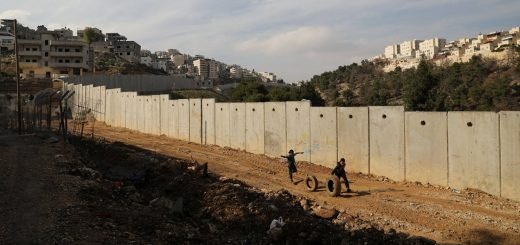When only bloodshed reminds us of Palestine
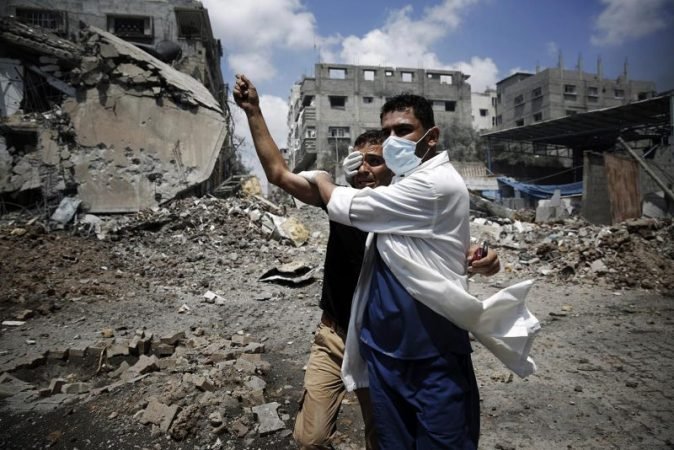
The heart-wrenching news from Palestine has revived debate on the issue again. While nations and people are choosing sides, on the peninsula, humanity dies. The recent events mark a very high degree of violence, so concerning that some analysts worry it might lead to another Intifada. It must be remembered that the degree of violence might rise or decline but it never ceases to exist.
Violence does not always mean conspicuous bloodshed. It takes several forms, many a times, so embedded in the structures that it becomes almost invisible to the eye and attack continues by other means, even at times which appear to us as ‘peaceful’
Amnesty International reports that over 65 laws discriminate against Palestinians of the Occupied Palestinian Territories and Palestinian citizens of Israel. Palestinians, who comprise 20% of Israel’s population, receive only 1.7% of the budget allocation. Palestinians in Israel,for generations, have suffered from a lack of basic amenities like housing, education, healthcare and unemployment.
The Israel Lands (1960) law states that ownership of “Israel Lands” can only be transferred between three entities- the State, the Jewish National Fund and the Development Authority. The law restricts Palestinians from leasing about 80% of the State owned land.
The Absentees’ Property Law of 1950 declares Palestinian refugees expelled after November 29,1947 as “Absentees” and denies them any rights. Their moveable and immoveable property have been confiscated by the State. On the contrary, the Law of Return of 1950, grants Israeli citizenship to any Jewish person from any part of the world.
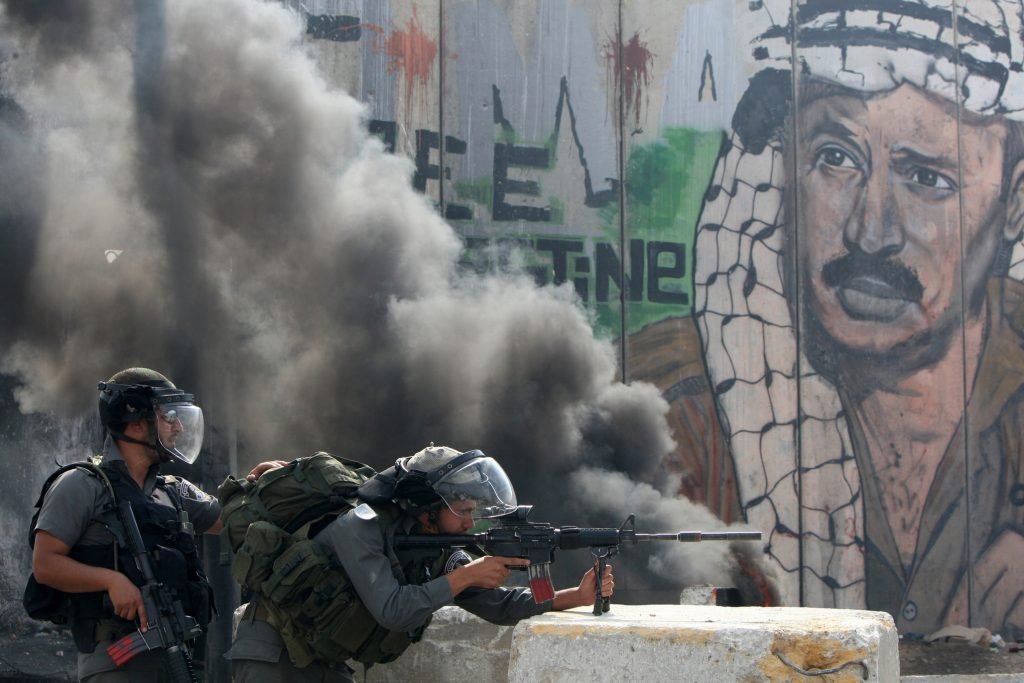
A 2018 law passed by the Knesset empowers the Interior Minister to revoke the citizenship of a Palestinian living in Jerusalem on grounds of “breach of loyalty”. Though Israel considers East Jerusalem a part of its “eternal, undivided” capital, most Palestinians living in the region do not have citizenship. 420,000 of such people are treated as foreign immigrants by the State, which makes them stateless and hence, devoids them of all rights. Since 1967, Israel has revoked the citizenship of around 14,000. Palestinians.
The Ban on Family Unification, 2003 prohibits the unification of intermarried couples of Israel and Occupied Palestinian Territories. The Ban was renewed as part of the Citizenship and Entry into Israel Law for the fifteenth year.
Observance of the Nakba Day, Israel’s independence day, which Palestinians consider a day of mourning, too has come under the scanner. The Nakba Law of 2011 empowers the Finance Minister to reduce monetary funding or support to any institution holding Israel’s independence day as a day of mourning.
Moreover, As per the UN Office for the Coordination of Humanitarian Affairs (OCHA), Israeli authorities have demolished over 848 residential and livelihood structures of Palestinians in the occupied territories, displacing 996 people, on the grounds that they lacked Israel issued permits which are virtually impossible for Palestinians to obtain. As per the UN OCHA, the year 2020 marked the highest number of demolitions and displacement in the West Bank.
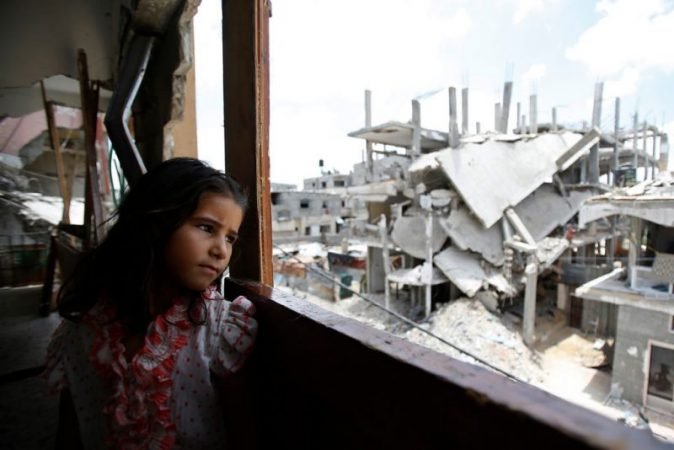
Economically too, Palestinians are one of the most vulnerable communities. Around 90% of the families have accumulated unsustainable debts which they are unable to pay.
The 2017 UNCTAD Assistance to the Palestinian people report stated that fifty years of Occupation has agriculturally and industrially hollowed out the economy of the Occupied Palestinian Territories. Only 1 out of 5 hectares of cultivable land is used, while 9 out of 10 hectares of land lacks irrigational facilities. With a ban on import of fertilisers and other agricultural implements, the share of agriculture in the GDP fell 11% between 2015 and 2016. The GDP per capita income remains at the same level as it was in 1999. Alarming cases of unemployment, as high as 27% in OPT and 42% in Gaza, were reported in 2016. Travel restrictions on the entry of Palestinians supported by a discriminatory legal apparatus makes it impossible for them to get a job in Israel.
Healthcare infrastructure for the Palestinians too is very brittle. In the wake of the coronavirus pandemic, while Israel had the highest per capita inoculation coverage, Palestinians were devoid of vaccines.
What is deeply disturbing is how little concern was raised when the above listed events took place.
Palestinians do not just face military oppression and extrajudicial killings but have been strangled by legal apartheid,economic oppression and structural violence. The resolution to the issue must come through an efficient and peaceful negotiation process but till it is achieved, Israel and the international community can not turn a blind eye to the atrocities.
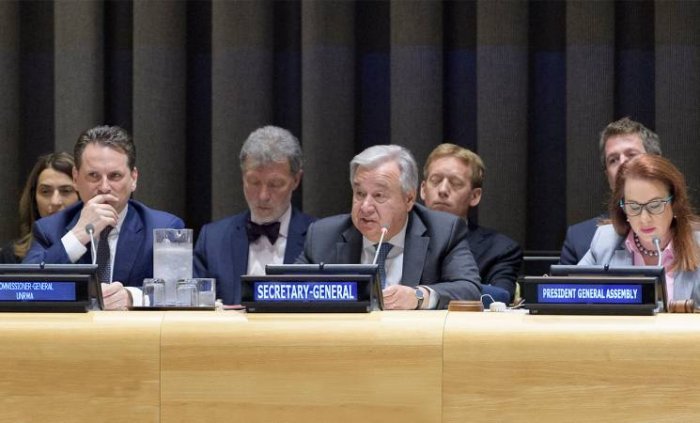
It is not just a particular state or international organisation that has failed to protect their rights but we too, as the international community and above all, as humans,have failed. For this is neither the first and unfortunately, nor the last time Palestinians suffer.
Negotiations take place, agreements are signed, violated, dishonoured and given a silent burial. Whenever violence breaks out, a cry for peace emerges, resounds and with military ceasefire,stops. Our voice wanes but their sufferings don’t. What Palestinians need is not just immediate ceasefire but a helping hand when bombings stop. A hand which lifts them up and enables them to stand on their feet again. A hand which caresses their wounds and enables them to rebuild their community from the ravages of decades of oppression.
Once the heartbreaking crisis ends, blood will be washed away but scars left behind will be too deep to be forgotten. Once the ongoing crisis ends, perhaps this conflict will join the list of several others of its kind. But once the crisis ends and someone’s child, someone’s wife, someone’s husband, someone’s parents,someone’s siblings and someone’s friends cease to be digits in the total death toll, ask this question: do we remember or will it take another bloodshed to remind us of the plight of our fellow humans?



